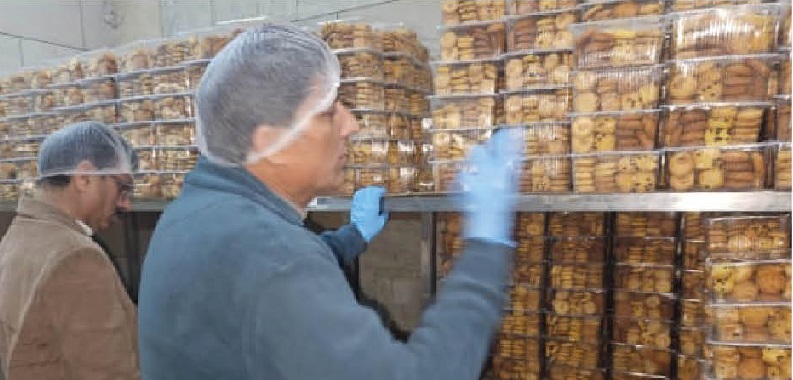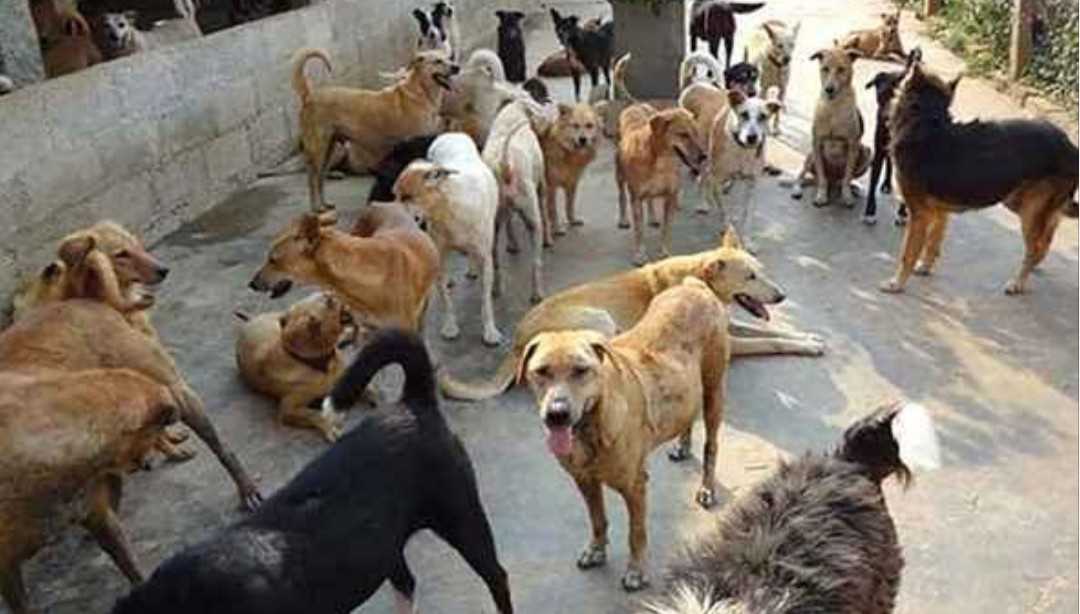Food Safety in Kashmir: How Adulterated Food & Fake Supplements Endanger Public Health
By: Javid Amin | 02 August 2025
Kashmir is facing a silent health catastrophe, not from political unrest or climate change—but from what lies on its people’s plates. From fake cheese to chemically treated milk, and from antibiotic-laced meat to repackaged expired goods, the valley’s food system is infested with dangerous, toxic substances. This issue is no longer just about taste or quality—it’s about survival, public health, and regulatory collapse.
The Rotten Truth: Unsafe Food Flooding Kashmir Markets
Startling Seizures in Recent Inspections
Recent crackdowns by food safety authorities in Jammu and Kashmir have revealed a horrifying picture. Over 51,000 kilograms of adulterated and unsafe food have been seized in the last six months alone. Among the most disturbing cases:
-
1,200 kg of decomposed meat was found in Srinagar, being stored in unclean, non-refrigerated environments—some of it teeming with maggots.
-
Dozens of fake and chemically laced cheese consignments were intercepted in transit to local bakeries.
-
Multiple warehouses contained expired soft drinks, synthetic sweets, and spoiled dairy, ready to be sold during peak seasons like Eid and weddings.
Despite these seizures, many experts believe they represent just the tip of the iceberg.
Synthetic Poisons Masquerading as Food
Food adulteration in Kashmir has evolved with technology. Instead of simply mixing low-grade materials, sellers are now using industrial chemicals, synthetic whiteners, and starch-based emulsifiers to fake everything from milk to mayonnaise.
Worse still, health supplements that flood local gyms and online shops are often counterfeit. Many contain high doses of steroids, caffeine derivatives, or sugar substitutes that cause long-term organ damage.
Health Fallout: From Gut Infections to Liver Damage
Surge in Hospital Admissions
Doctors across government and private hospitals in Kashmir have reported a worrying increase in foodborne illnesses. Outpatient records and internal medical case logs point to a significant correlation between rising food toxicity and:
-
Hepatitis A and E outbreaks—largely due to contaminated street food and untreated water.
-
Drug-resistant gastrointestinal infections—linked to meat laced with antibiotics used indiscriminately in poultry farming.
-
Liver cirrhosis and fatty liver disease—even among young adults, caused by regular consumption of synthetic fats and contaminated oils.
Expert Insights from the Medical Community
Dr. Arshid Ahmad, a gastroenterologist at SMHS Hospital Srinagar, noted:
“We are seeing a 30–40% rise in cases of gut-related complications over the past 2 years, especially among youth who frequently eat outside. Many of these cases are directly linked to adulterated food and poor hygiene.”
Ground Reality: What’s Going Wrong on the Ground?
Meat Shops Operating Without Cold Storage
The valley’s meat supply chain is crumbling under outdated infrastructure. Meat is often stored without cold chains, transported in open vans, and exposed to flies, dust, and heat. Many local shops don’t even own functional refrigerators.
During inspections, many butcher shops were found washing meat with tap water to “freshen it up” for display, unknowingly adding water-borne bacteria into the product.
Reused Oil: A Silent Carcinogen
Street vendors, especially in downtown Srinagar and Anantnag, are known to reuse the same cooking oil multiple times across several days. This practice leads to the accumulation of toxic trans fats and carcinogens.
Studies link reused oils to higher risks of:
-
Heart disease
-
Colon cancer
-
Lowered immunity
Expired Goods with Fake Labels
In one recent raid on a major bakery chain, officials found dozens of kilograms of expired ingredients including flour, baking soda, and artificial sweeteners—being relabelled with new expiration dates using portable printers.
Even large supermarkets are reportedly restocking expired items during peak tourist seasons, relying on poor consumer awareness and lack of complaint channels.
Imported Meat: No Inspections, No Accountability
A massive portion of meat and frozen foods entering Kashmir comes from outside the Union Territory. Most of this enters without veterinary checks or regulatory approval. Authorities admit:
-
There is no mechanism to check antibiotic residues in imported poultry.
-
Cold chain breaches are common as trucks arrive unrefrigerated or delayed.
-
Often, the source of the meat is unknown, raising both health and religious concerns.
This complete lack of traceability makes it nearly impossible to verify what Kashmiris are eating.
What’s Fueling This Crisis?
Weak Regulatory Oversight
Food safety officers in Kashmir are woefully understaffed and under-equipped. While the Food Safety and Standards Authority of India (FSSAI) guidelines mandate strict quality checks, in practice:
-
Most inspections are reactive, not proactive.
-
There is no digitized record of offenders or previous violations.
-
Penalties are minimal, and convictions rare.
A single food safety officer is expected to monitor over 500 vendors in some districts, which is a logistical nightmare.
Public Awareness is Shockingly Low
While a small group of educated consumers check expiry dates and labels, the majority still trust vendors blindly. There is very little understanding of what “adulteration” means or how dangerous it can be.
Most customers:
-
Don’t ask for bills
-
Don’t report foul taste or packaging faults
-
Prioritize low price or taste over hygiene
The absence of a consumer complaint culture worsens the problem.
A Public Health Emergency in Slow Motion
From Market to Morgue
The real tragedy of Kashmir’s food safety crisis is that it plays out slowly. Unlike a violent event, contaminated food doesn’t kill instantly—it breaks down the body bit by bit.
Children fed synthetic milk may face:
-
Hormonal imbalance
-
Stunted growth
-
Learning disabilities
Young gym-goers consuming fake protein may develop:
-
Kidney damage
-
Infertility
-
Depression
Pregnant women exposed to expired products risk birth defects and complications.
Economic Cost of a Sick Population
Besides health, the economic burden is staggering:
-
Rising medical expenses
-
Productivity loss due to sick days
-
Higher infant and maternal mortality
If unaddressed, this issue could become the next major public health disaster in Kashmir.
What Needs to Be Done: Solutions That Matter
01. Strengthening Inspections
-
Appoint more food safety officers at the district and municipal level.
-
Make routine, surprise inspections mandatory every quarter.
-
Invest in mobile food testing vans for on-spot verification.
02. Digital Tracking & Reporting
-
Develop a QR-based food traceability system where consumers can scan and check batch origin.
-
Create a public dashboard of violators and past offenders.
03. Mass Public Awareness Campaigns
-
Use radio, local TV, and social media to teach people how to spot adulterated food.
-
Launch school and college food safety awareness programs.
-
Include consumer health rights in curriculum and local governance discussions.
04. Tougher Penalties & Naming/Shaming
-
Enforce hefty fines and jail terms for repeat offenders.
-
Publicly list names of companies caught for adulteration.
-
Bar repeat violators from doing business in the state.
Voices Rising: Civil Society & Whistleblowers
In recent months, local NGOs, activists, and even some journalists have begun spotlighting the crisis. Whistleblowers in meat markets have shared secret recordings and photos of illegal storage conditions.
Some brave citizens have:
-
Filed public interest litigations in J&K High Court.
-
Launched awareness YouTube channels.
-
Created community WhatsApp groups to report unsafe vendors.
Conclusion: It’s Not Just About Food, It’s About the Future
The battle for clean, safe food in Kashmir is a fight for public health, dignity, and survival. What people eat today will shape the next generation’s health, economy, and well-being.
Let’s be clear: this is not just a food issue—it’s a public health emergency. Unless urgent action is taken—from regulation and awareness to enforcement and accountability—Kashmir’s kitchens will continue to be battlegrounds of toxicity.
The question is: Will we act before it’s too late?
Key Takeaways
-
Over 51,000 kg of adulterated food seized across Jammu & Kashmir.
-
Decomposed meat, synthetic dairy, and fake supplements are common in local markets.
-
Rising gut infections, hepatitis, and chronic diseases linked to food toxicity.
-
Poor regulation, lack of awareness, and zero accountability worsen the crisis.
-
Stricter inspections, public awareness, and digital food tracing can help curb the threat.



